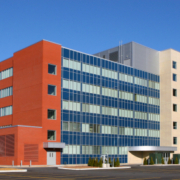SNAP Asks Congress to Help Hospitals Keep Provider Relief Fund Grants
Pennsylvania’s safety-net hospitals could lose some or all of their CARES Act Provider Relief Fund grant money and the Safety-Net Association of Pennsylvania is asking members of the state’s congressional delegation to intervene on their behalf to prevent it.
 At issue are financial reporting requirements that at first directed hospitals to estimate their anticipated revenue losses and extra expenses associated with the COVID-19 pandemic in one way and then shifted to a new approach. The first grant distribution was based on the original reporting requirements, and now, hospitals fear that the change in reporting requirements could leave them vulnerable to a demand that they return some, much, or all of that grant money.
At issue are financial reporting requirements that at first directed hospitals to estimate their anticipated revenue losses and extra expenses associated with the COVID-19 pandemic in one way and then shifted to a new approach. The first grant distribution was based on the original reporting requirements, and now, hospitals fear that the change in reporting requirements could leave them vulnerable to a demand that they return some, much, or all of that grant money.
The Department of Health and Human Services announced one set of reporting requirement in June and then proposed modifying them in September. In response to widespread expressions of concern, including from SNAP, HHS revised those proposed changes – but not enough, according to many stakeholders, leaving them concerned that HHS would ask them to return some of their grant money. Now, SNAP is asking the same members of the Pennsylvania congressional delegation who asked HHS to reconsider the reporting requirements to do so again.
See SNAP’s letter to the delegation asking its members to sign onto a bipartisan letter asking HHS to revise its reporting requirements once again. Go here to see the letter members of Congress are being asked to sign.

 An Interagency Health Reform Council charged with developing recommendations on how to identify and capitalize on efficiencies in the existing health care system.
An Interagency Health Reform Council charged with developing recommendations on how to identify and capitalize on efficiencies in the existing health care system. Such a shift would be especially challenging for Pennsylvania safety-net hospitals because they already serve higher proportions of Medicaid and uninsured patients than the typical community hospital.
Such a shift would be especially challenging for Pennsylvania safety-net hospitals because they already serve higher proportions of Medicaid and uninsured patients than the typical community hospital. In a tweet earlier this week, Centers for Medicare & Medicaid Services Administrator Seema Verma wrote that
In a tweet earlier this week, Centers for Medicare & Medicaid Services Administrator Seema Verma wrote that According to the study,
According to the study, Department of Health – by the numbers
Department of Health – by the numbers CMS has published a
CMS has published a